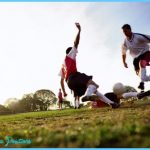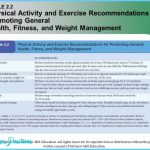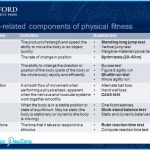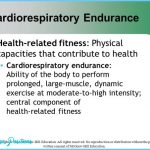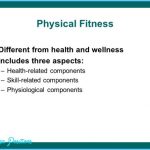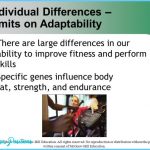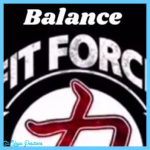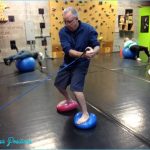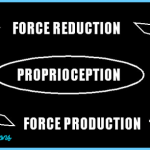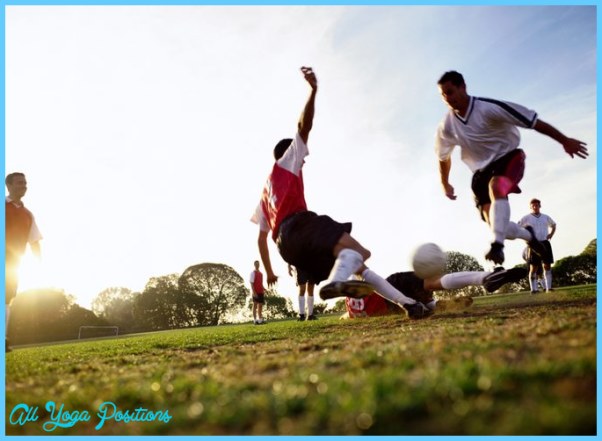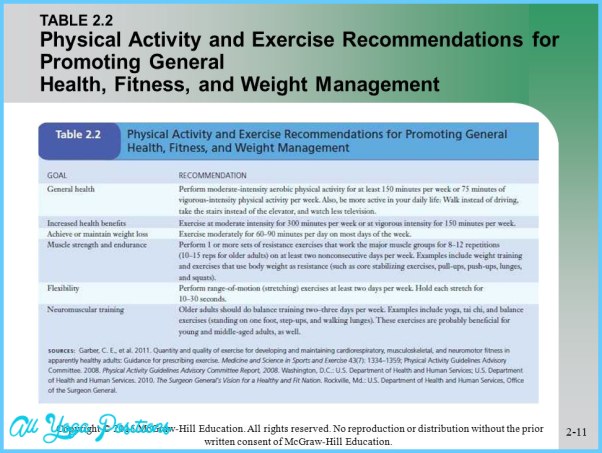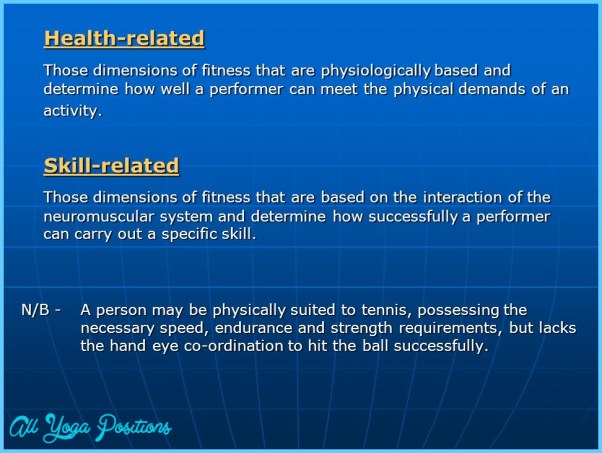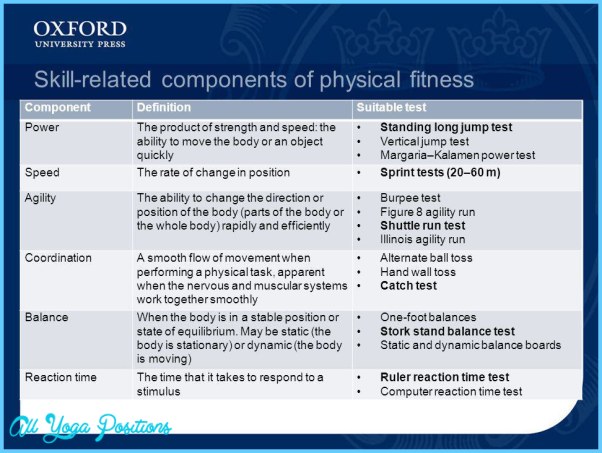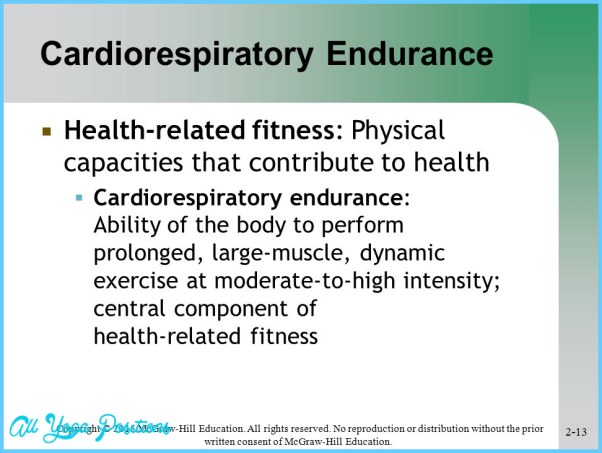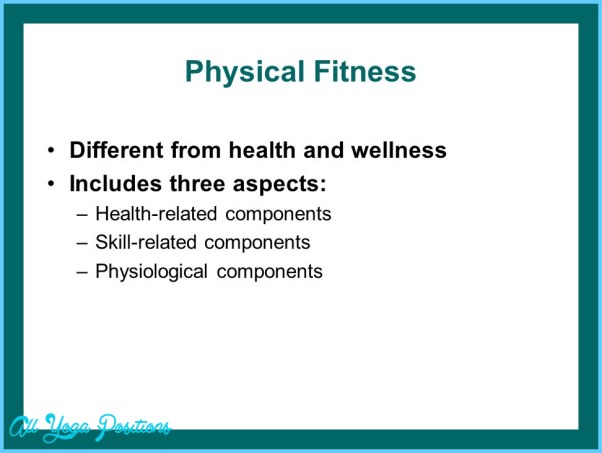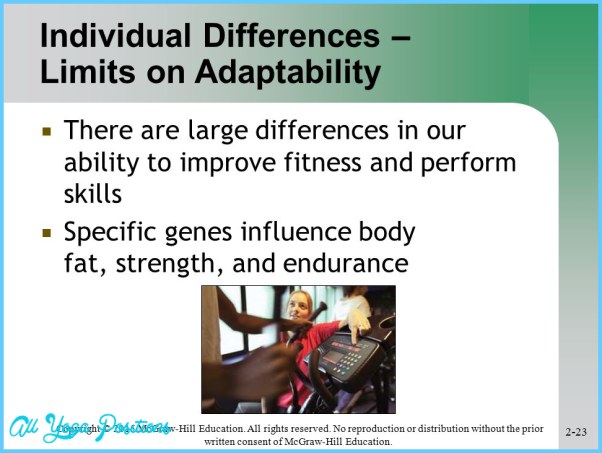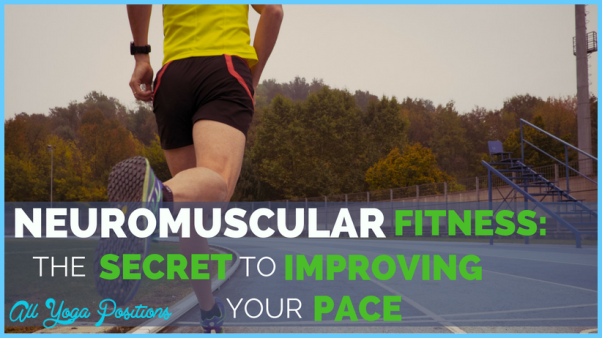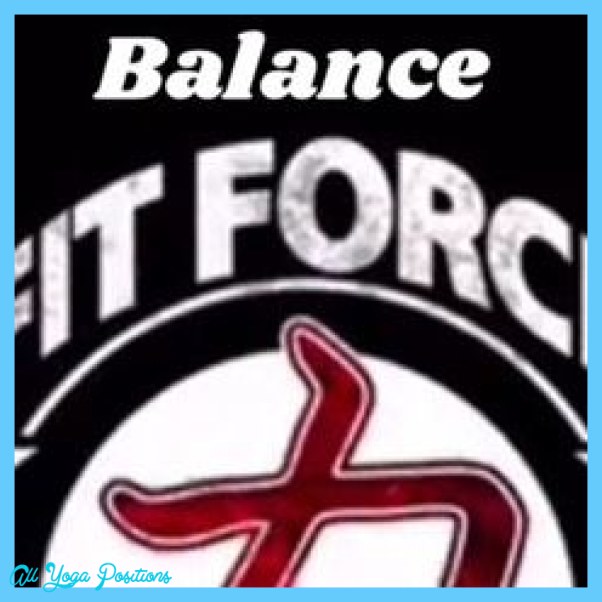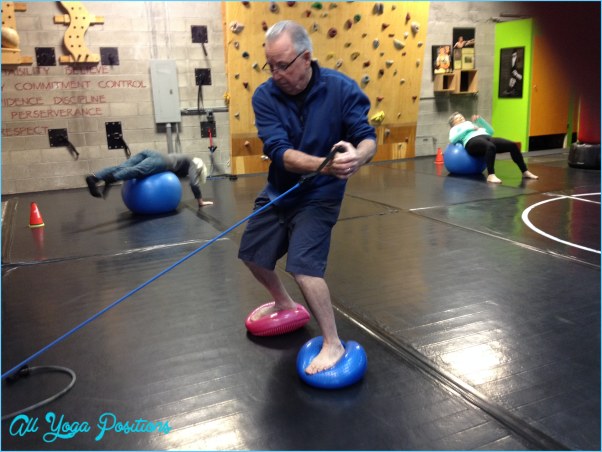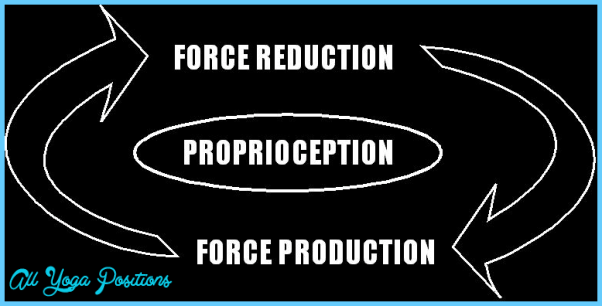kill (Neuromuscular)-Related Components of Fitness
In addition to the five health-related components of physical fitness, the ability to perform a particular sport or activity may depend on skill (neuromuscular)-related fitness.
Neuromuscular refers to the complex control of muscles and movement by the brain and spinal column. The components of skill-related fitness include the following:
• Speed the ability to perform a movement in a short period of time
• Power the ability to exert force rapidly, based on a combination of strength and speed
• Agility the ability to change the position of the body quickly and accurately
• Balance the ability to maintain equilibrium while moving or while stationary
• Coordination the ability to perform motor tasks accurately and smoothly using body movements and the senses
• Reaction and movement time the ability to respond and react quickly to a stimulus
Skill Neuromuscular-Related Components of Fitness Photo Gallery
Skill-related fitness tends to be sport-specific and is best developed through practice. For example, playing basketball can develop the speed, coordination, and agility needed to engage in the sport. Participating in sports is fun, can help build fitness, and contributes to other areas of wellness. Young adults often find it easier to exercise regularly when
Elite athletes demonstrate sport-specific skills such as speed, power, agility, coordination, and reaction time, they participate in sports and activities they enjoy, such as dancing, tennis, snowboarding, or basketball. Older adults can develop balance by practicing exercises such as yoga and tai chi. Skill-related activities are particularly important for older adults to help prevent life-threatening falls.

